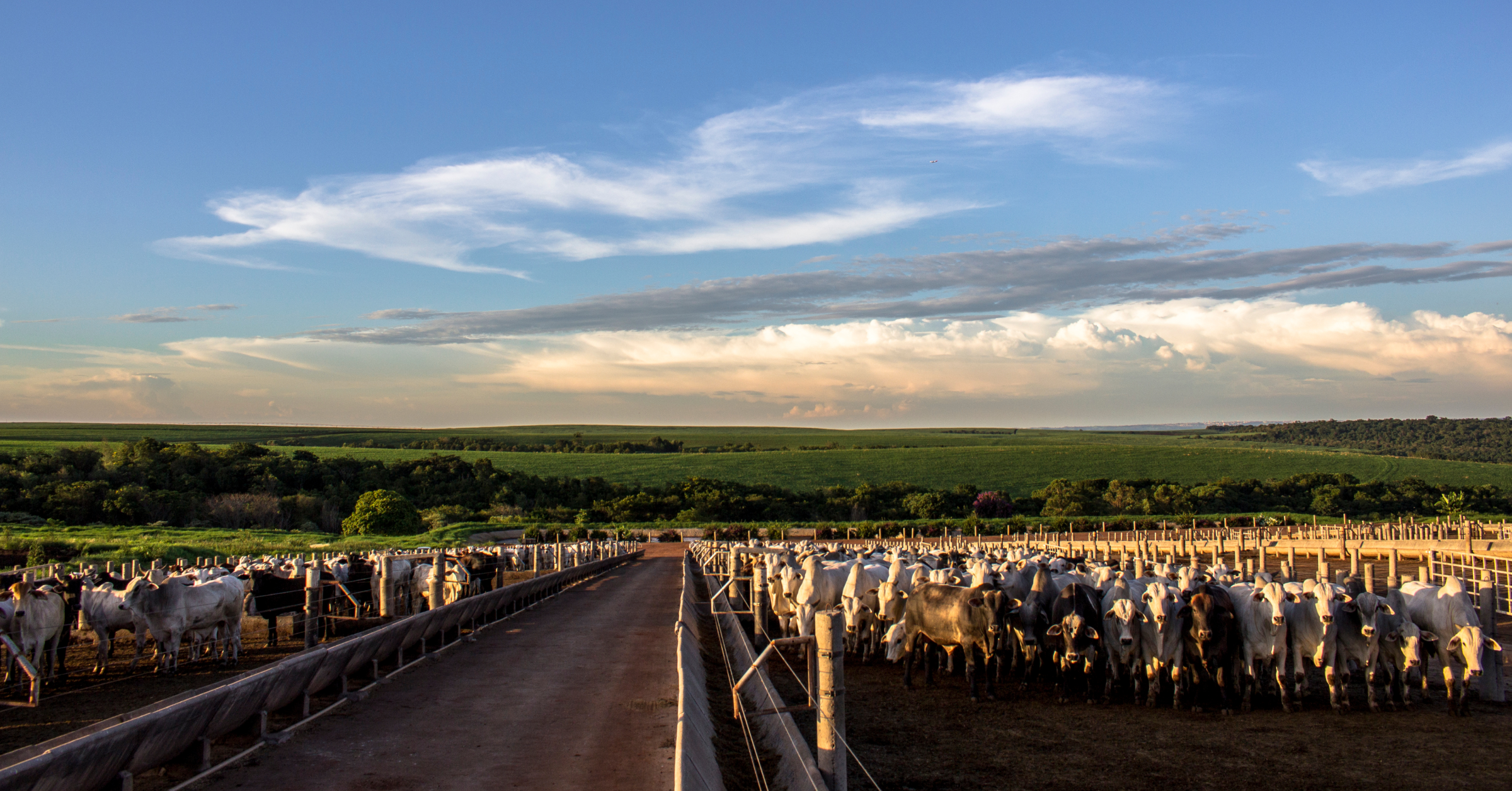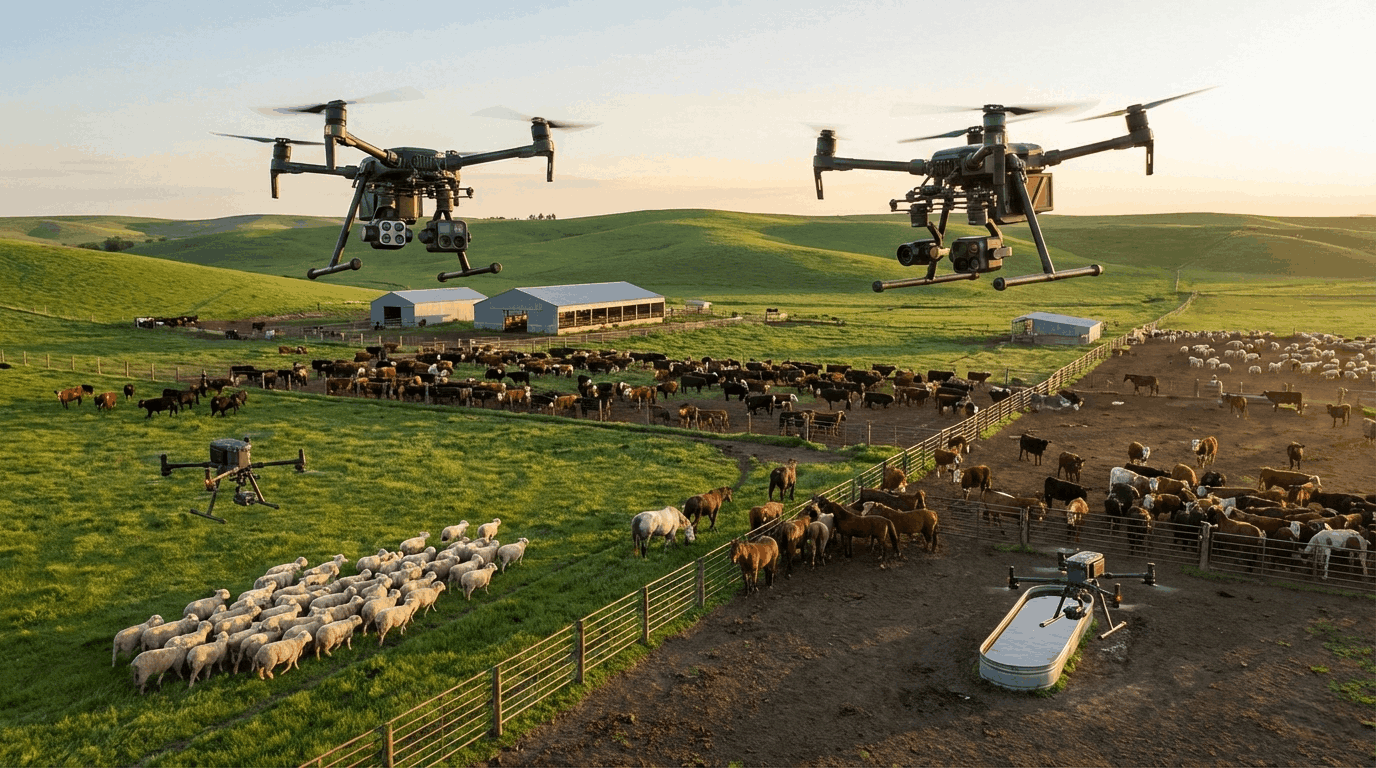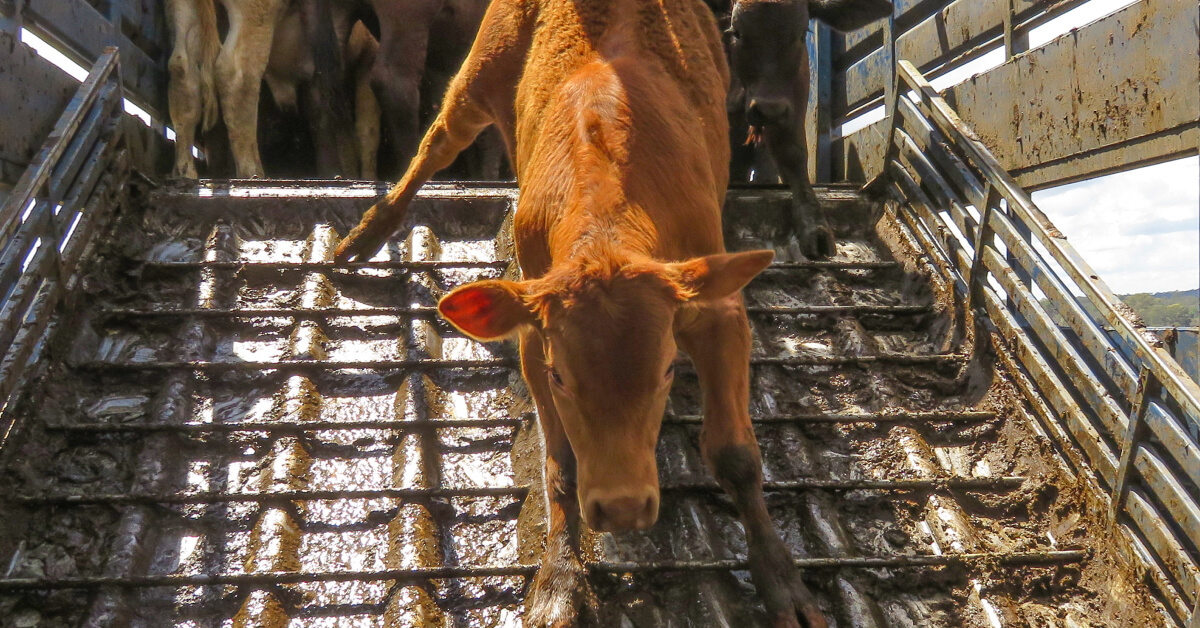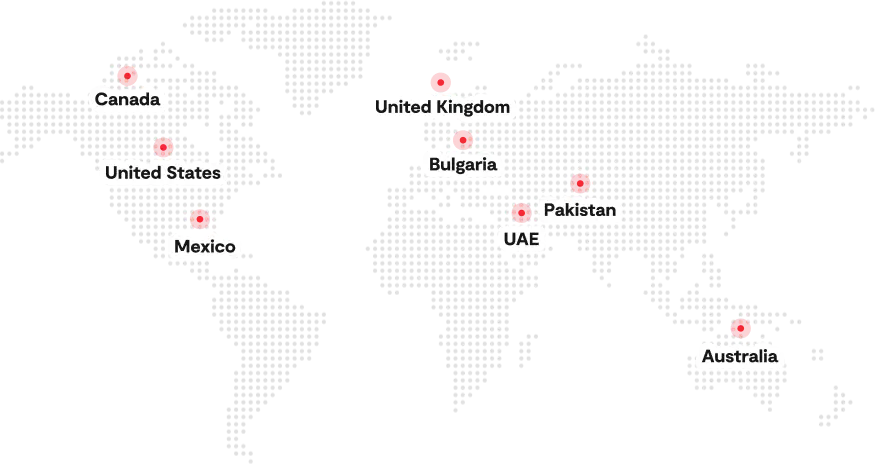The rise of agriculture ecommerce is not just a trend; it’s a revolution reshaping how farmers and agribusinesses operate. According to a report by Statista, the global e-commerce market in agriculture is projected to reach over $30 billion by 2025. This shift presents a unique opportunity for farmers, agribusiness owners, and decision-makers to tap into the digital landscape and enhance their business models.
In this blog, we will explore the transformative power of e-commerce in agribusiness, highlighting its advantages, the challenges faced, and practical steps for successful implementation.
What is Agriculture Ecommerce?
Agriculture ecommerce refers to buying and selling agricultural products and services online. It encompasses various business models that facilitate transactions between farmers, consumers, or other businesses through digital platforms.
Growth of Ecommerce in Agriculture
In recent years, there has been a significant surge in online platforms dedicated to agriculture. The rise of direct-to-consumer (DTC) models and Business-to-Business (B2B) marketplaces has revolutionized how agricultural products are marketed and sold. Farmers now have the opportunity to reach consumers directly, minimizing the reliance on traditional supply chains and intermediaries.
Types of Agriculture Ecommerce
- B2C (Business to Consumer): This model allows farmers to sell their products directly to consumers, fostering stronger relationships and eliminating mediators.
- B2B (Business to Business): This involves transactions between agricultural suppliers and other businesses, such as retailers and distributors, enhancing supply chain efficiency. To make these details clearer and more impactful, using an AI PowerPoint maker can be really helpful.
- Online Marketplaces: Platforms like Alibaba and FarmCrowdy serve as aggregators, connecting farmers with buyers worldwide and thus expanding their market reach.
Benefits of E-commerce for Agri-Business
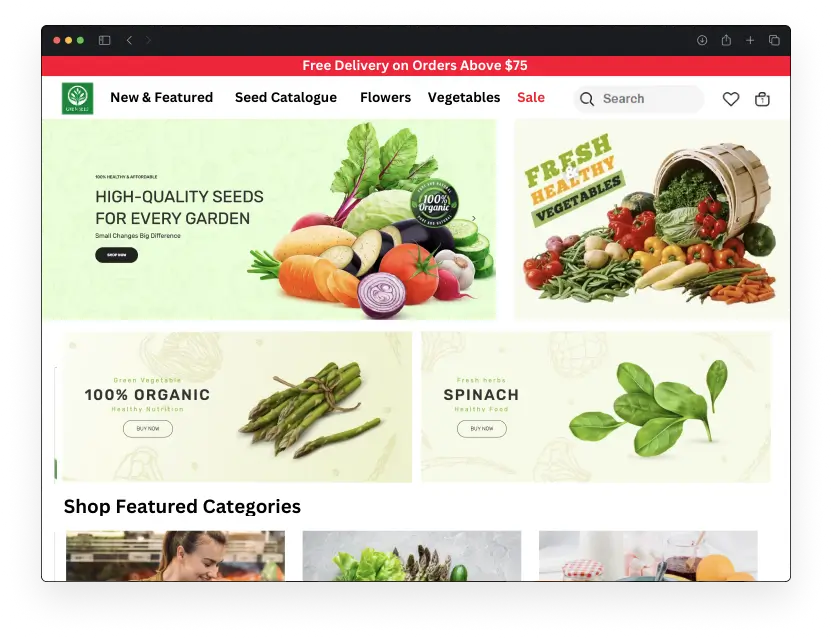
Farmers and agribusinesses are no longer confined to traditional selling methods; they can now access many opportunities through online platforms. This shift opens doors to new markets and empowers agribusinesses to enhance their operational efficiency and profitability. In addition to dedicated e-commerce websites, integrating solutions like a WhatsApp store enables farmers to showcase products, take orders, and communicate directly with customers in a convenient, mobile-friendly way. By adopting simple order management software, agribusinesses can streamline order processing and inventory tracking, allowing farmers to focus on expanding their market reach and improving customer satisfaction.
The benefits of e-commerce for agri-business extend beyond mere transactions; they encompass increased market reach, cost savings, improved profit margins, and the ability to make data-driven decisions. By adopting e-commerce strategies, farmers can connect directly with consumers, streamline their supply chains, and leverage technology for better inventory management and customer insights.
Let’s explore the key benefits that e-commerce brings to the agriculture industry, showcasing how it can help farmers thrive in an increasingly competitive market while meeting the growing consumer demand for fresh, locally sourced products.
Increased Market Reach
One of the most significant advantages of e-commerce is the access to global markets. Farmers can sell their products beyond local boundaries, reaching urban consumers increasingly seeking fresh, locally sourced produce. By using a business name generator, e-commerce startups can quickly establish a unique and recognizable presence online.
Lower Costs
E-commerce reduces logistics and overhead costs. Farmers can leverage digital tools to manage their inventory more efficiently, minimizing wastage and ensuring timely deliveries. In contrast to traditional marketplaces, where farmers bear the burden of high transaction costs, e-commerce allows for a more streamlined approach to sales.
Improved Profit Margins
Farmers can achieve better profit margins by selling directly to consumers. This direct sales approach eliminates mediators, granting farmers greater pricing power. Numerous success stories illustrate how agribusinesses have significantly increased their profits through e-commerce channels, showcasing the tangible benefits of this shift.
Efficient Supply Chain Management
E-commerce facilitates real-time data and automation for inventory tracking, enhancing supply chain management. Farmers can integrate digital payment gateways or work with financial software development companies to build secure, flexible payment flows into their sales processes, ensuring seamless transactions. Case studies of agribusinesses reveal that improved supply chain management results in timely deliveries and satisfied customers.
Data-Driven Decision Making
The role of analytics in agriculture ecommerce cannot be overstated. Farmers can refine their marketing strategies and make informed business decisions by leveraging customer insights and sales data. Customer Relationship Management (CRM) software tailored for agriculture allows agribusinesses to understand consumer behavior better, leading to more effective campaigns. Integrating CDP software enhances this process by unifying data from multiple sources to create comprehensive customer profiles, enabling even more precise targeting and personalization. Exploring a marketing agency directory can offer valuable resources for agribusinesses aiming to improve their marketing strategies.
Increased Consumer Trust and Transparency
Today’s consumers demand transparency regarding the origins of their food. E-commerce platforms incorporating blockchain technology can offer traceability, ensuring consumers know where their products come from. Certification and labeling systems further enhance trust, making consumers more likely to purchase from reputable online sources.
Challenges of Agriculture Ecommerce
While e-commerce presents numerous advantages for the agricultural sector, it also comes with a unique set of challenges that farmers and agribusinesses must navigate. Understanding these hurdles is crucial for developing effective strategies to overcome them and fully leverage the benefits of digital transformation. Below are some of the critical challenges associated with agriculture ecommerce:
1. Digital Divide in Rural Areas
Many rural areas need more internet access and a lack of digital literacy among farmers, creating significant barriers to e-commerce adoption. This digital divide can hinder farmers from fully participating in online marketplaces and accessing valuable resources.
Impact
- Farmers in remote regions may need help to connect with potential customers, losing sales opportunities.
- A lack of familiarity with digital tools can lead to difficulties in managing online transactions and marketing.
Solutions
- Government initiatives to improve internet infrastructure in rural areas can help bridge this gap.
- Tech training programs can empower farmers with the skills to navigate the digital landscape effectively.
2. Logistics and Transportation Challenges
Shipping perishable goods poses a significant challenge for agribusinesses venturing into e-commerce. Timely delivery and proper handling of products are critical, yet many farmers need more logistics infrastructure.
Impact
- Inefficient logistics can lead to product spoilage, resulting in financial losses and dissatisfied customers.
- Farmers may need help establishing reliable partnerships with logistics providers to meet their needs.
Solutions
- Innovative logistics solutions, such as third-party logistics (3PL) providers, can help farmers streamline their shipping processes.
- Investment in cold chain infrastructure can ensure the safe transport of perishable goods, preserving product quality.
3. Trust and Reliability Issues
Many farmers are hesitant to make digital transactions due to concerns about the security and reliability of online platforms. Building trust in e-commerce environments is crucial for encouraging wider adoption.
Impact
- Farmers may be reluctant to invest time and resources into e-commerce if they are uncertain about payment security and transaction reliability.
- Lack of user reviews and ratings can further exacerbate trust issues, making it difficult for new customers to gauge a seller’s credibility.
Solutions
- Implementing secure payment methods and transparent user feedback systems can enhance trust in online transactions.
- Agribusinesses should prioritize customer service and clear communication to build long-term consumer relationships.
4. Regulatory and Legal Barriers
Navigating the complex regulatory landscape surrounding agriculture ecommerce can pose significant challenges for farmers. Understanding what is AML compliance is essential for managing financial regulations effectively. Compliance with various regulations related to food safety, data protection, and cross-border trade is crucial for successful e-commerce operations.
Impact
- Farmers may face legal hurdles when selling products online, mainly when dealing with international customers.
- Data protection concerns can discourage farmers from fully engaging in e-commerce, as they fear potential breaches of customer information.
Solutions
- Staying informed about local and international regulations can help farmers navigate the legal complexities of e-commerce.
- Collaborating with legal experts or industry associations can provide valuable guidance on compliance issues.
5. Lack of Infrastructure
Many agribusinesses may find that existing digital tools and platforms must be tailored to their specific needs, leading to inefficiencies in operations and customer engagement.
Impact
- Farmers may need help integrating e-commerce solutions with their current farm management systems, hindering overall efficiency.
- The absence of user-friendly platforms can make it challenging for farmers to create an effective online presence.
Solutions
- The growth of agritech companies focused on addressing infrastructure gaps can provide farmers with the necessary digital tools.
- Investing in comprehensive e-commerce platforms designed specifically for agriculture can facilitate seamless operations.
6. Fragmented Market
The agricultural sector consists of many small-scale farmers who may need help to compete against established players in the e-commerce space. This fragmentation can pose significant challenges in scaling operations and gaining market share.
Impact
- Smallholder farmers may need help to gain visibility in crowded online marketplaces, leading to reduced sales and profitability.
- Competing against more giant agribusinesses with more resources can encourage small-scale farmers to pursue e-commerce opportunities.
Solutions
- Niche platforms can support smallholder farmers by providing tailored solutions catering to their needs.
- Collaborative initiatives like cooperatives or farmer groups can help small-scale farmers pool resources and improve their market positioning.
Key Trends Driving Agriculture Ecommerce
As e-commerce continues to reshape the agricultural landscape, several key trends are emerging that significantly influence how farmers and agribusinesses operate digitally. These trends reflect consumers’ changing preferences and highlight the innovative technologies and strategies adopted to enhance efficiency and market reach. Here are some of the key trends driving agriculture ecommerce:
Digital Marketplaces and Platforms
The growth of digital marketplaces like FarmCrowdy and Agribuddy illustrates the increasing acceptance of e-commerce in agriculture. These platforms connect farmers directly with consumers, providing valuable resources and support.
Mobile-First Commerce
With mobile devices becoming ubiquitous, the importance of mobile apps in rural areas cannot be overstated. Farmers can more efficiently manage their businesses through mobile platforms, track sales, and communicate with customers. Partnering with a reliable mobile app development can help create tailored solutions that meet the unique needs of rural businesses, enhancing their operations and accessibility.
Integration with Smart Farming Technologies
The integration of Internet of Things (IoT) devices and Artificial Intelligence (AI) technologies is streamlining supply chains and enhancing productivity in agriculture. These technologies enable farmers to monitor their crops and optimize their operations through data-driven insights.
Rise of D2C (Direct-to-Consumer) Agriculture
The D2C model is gaining traction, allowing farmers to sell their products directly to consumers. Case studies of agribusinesses thriving with this model showcase its effectiveness in building brand loyalty and improving profit margins.
Sustainable E-commerce Practices
Consumers are increasingly concerned about sustainability, driving demand for eco-friendly packaging and organic produce. E-commerce platforms emphasizing sustainability practices will likely resonate with today’s environmentally conscious consumers.
The Future of E-commerce in Agri-Business
The future of e-commerce in the agricultural sector promises to be transformative, driven by technological advancements and evolving consumer preferences. As agribusinesses increasingly adopt digital solutions, several trends and innovations are set to redefine how agricultural products are marketed, sold, and delivered. Here are key areas shaping the future of e-commerce in agri-business:
Emerging Technologies
The future of agriculture ecommerce is bright, with emerging technologies like AI, blockchain, and drones set to revolutionize the industry further. These innovations will enhance efficiency, improve traceability, and optimize farming practices.
Sustainability in Agriculture Ecommerce
Sustainable practices will play a crucial role in shaping the future of e-commerce in agriculture. Local sourcing, reduced carbon footprints, and eco-friendly practices will become increasingly important as consumers demand greater brand accountability.
E-commerce Adoption Rates Among Smallholder Farmers
Predictions indicate a significant increase in e-commerce adoption among smallholder farmers in the coming years. With ongoing education and support, more farmers will leverage digital platforms to grow their businesses.
Global Expansion and Cross-Border E-commerce
The potential for global expansion and cross-border e-commerce presents both opportunities and challenges. As agribusinesses explore international markets, understanding regulatory landscapes and consumer preferences will be vital for success.
Conclusion
The landscape of agriculture is changing dramatically due to e-commerce, offering numerous advantages such as increased market reach, lower costs, improved profit margins, and enhanced supply chain management. However, challenges like the digital divide, logistics issues, and regulatory barriers must be addressed for widespread adoption.
As agribusinesses embrace digital transformation, the future of agriculture ecommerce looks promising, driven by emerging technologies and a growing focus on sustainability. Farmers and agribusiness owners can leverage these opportunities to thrive in an increasingly digital marketplace.
FAQs
What Are the Main Advantages of Agriculture Ecommerce?
The main advantages include increased market reach, lower operational costs, improved profit margins, and enhanced supply chain efficiency.
How Can Smallholder Farmers Benefit From E-Commerce?
By bypassing intermediaries, smallholder farmers can access broader markets, sell directly to consumers, and improve their profit margins.
What Challenges Do Farmers Face When Adopting E-Commerce?
Farmers face limited internet access, lack of digital literacy, logistical issues, and regulatory hurdles.
How Can Farmers Build Trust in Online Transactions?
Farmers can build trust by using secure payment methods, encouraging user reviews, and providing transparent return policies.
What Role Do Emerging Technologies Play in Agriculture Ecommerce?
Emerging technologies like AI, blockchain, and IoT enhance operational efficiency, improve product traceability, and streamline supply chains in agriculture ecommerce.


